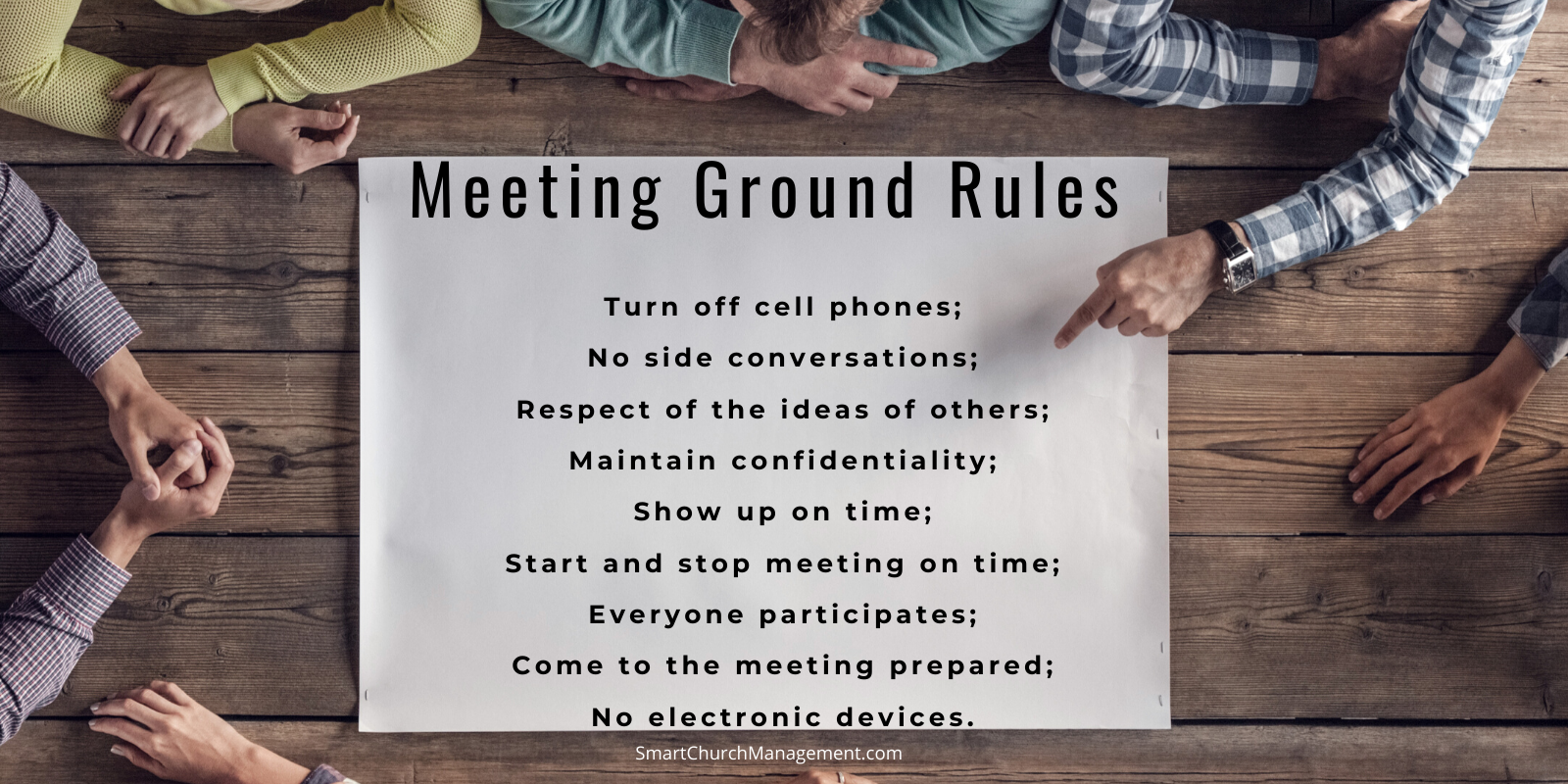Estimated reading time: 5 minutes
A friend was looking at her work calendar and sighed because she had a week with lots of meetings scheduled.
She continued to vent frustration about attending meetings that were unstructured with rude people. Team gatherings that lacked defined meeting ground rules.
Technology is a wonderful thing, but the (negative) impact it has had on meeting productivity is significant.
There was a time (not too long ago) when meetings didn’t have the challenge and distraction of ringing cell phones, beeping text messages, emails on laptops or news updates on iPads.
I’m not suggesting that meetings then were always run well – because they weren’t.
But there are definitely things a meeting team leader can do to increase participation and reduce wasted time when meeting in a group.
Anyone who has had team leader skills training understands the concept and importance of having meeting ground rules.
These meeting rules help to influence positive meeting etiquette and productivity – which is an important part of effective church management.
So what are meeting ground rules?
Meeting ground rules are simply an agreed-upon list of behavior expectations for team members while participating in a meeting.
They help to hold everyone accountable for behaviors so they can stay focused on the task at hand.
It’s pretty common for chartered committees or decision-making councils to come up with ground rules.
However, the day-to-day meetings that most of us endure don’t always see the value in or take the time to, establish those behavioral expectations.
This can become frustrating for the person who is trying to facilitate the meeting.
Every organization should have meeting expectations (meeting ground rules) that should be printed and hung in every conference room.

Having said that, there always needs to be flexibility in practice.
Individual teams may vary their ground rules based on the objective of the meeting and the participants involved.
They may add to or take away rules.
For example, if a team is charged with coming up with a creative theme for the upcoming vacation bible school, having laptops and iPads to use as a resource for ideas may be appropriate.
How to establish meeting ground rules.
To come up with a list of group or team ground rules, simply start by communicating your list of behavior expectations as the meeting facilitator.
Then, open it up to team members and see if they have anything to add.
Ask them how they would like the group to interact and behave – and what they hope to gain out of participation in the group.
Have them share their own frustrating meeting experiences – when people spoke out of turn, played on their phones, or simply showed up late and unprepared.
Once the group thinks about those pain points, they will quickly add their own pet peeve.
Example of Team Meeting Ground Rules
- Turn off cell phones – cell phones can distract from a productive meeting and result in a lost focus on the meeting topic.
- No side conversations – Side conversations are rude and often distract and create division among team members.
- Be respectful of the ideas of others – All team members bring a diversity of thought to a meeting. Respect the thoughts and opinions of others and ask questions to clarify meaning.

- Maintain confidentiality – Often, team meetings discuss confidential information, or team member interaction should be confidential. For instance, if the team debates a disagreement, that team debate should be treated as confidential and not discussed outside of the team meetings.
- Show up on time – Everyone’s time is valuable. Showing up late to a meeting is rude and shows disrespect to fellow team members. Do your best to show up on time out of respect for the other members of the team.
- Start and stop meeting on time – No one likes when meetings go past their scheduled time. Assign a timekeeper with a timed-out agenda to keep the group on task. When the time is up, promptly end the meeting.
- Everyone participates – Teams are formed with members who bring valuable knowledge and experience to the team. The facilitator is responsible for ensuring that everyone participates by managing the dominant personalities and encouraging everyone (the more timid personalities) to share thoughts and ideas.
- Everyone comes to the meeting prepared – Most meetings result in the next steps that require team homework. Team members should take this responsibility seriously and be prepared to discuss agenda items.
- No electronic devices – Unless a meeting requires a laptop or iPad to do meeting research, require members to silence and park their personal devices at the door.
If you look at this list you will notice that each rule supports a focused meeting that is respectful of others without the distractions of technology.
Again these are merely examples of some of the more common ground rules.
Obviously every meeting, every team, every group has different goals, objectives, and agendas.
This is why customizing ground rules for each meeting often makes sense.
Meetings are an important way to achieve strategy and to get things done.
Take the time to create meeting ground rules for your teams so the time that is spent in the conference room is productive for all!
Do you use ground rules for your meetings?



